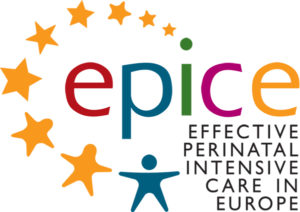 On the occasion of World Breastfeeding Week 2018, we are happy to share these recent findings regarding practices of breastfeeding preterm infants. As a proud partner within the EPICE/SHIPS research consortium EFCNI is happy to present newest results on breast milk feeding outcomes in European NICUs and after discharge. Two publications using data of a Europe-wide cohort of very preterm infants investigated manifold factors associated with breastfeeding rate and duration after discharge.
On the occasion of World Breastfeeding Week 2018, we are happy to share these recent findings regarding practices of breastfeeding preterm infants. As a proud partner within the EPICE/SHIPS research consortium EFCNI is happy to present newest results on breast milk feeding outcomes in European NICUs and after discharge. Two publications using data of a Europe-wide cohort of very preterm infants investigated manifold factors associated with breastfeeding rate and duration after discharge.

Due to the benefits of breast milk for preterm infants in the prevention of various morbidities and in fostering of brain development, exclusive breastfeeding is recommended in the first 6 months of age. Thus, research interest in maternal, neonatal, and organisational factors associated with breastfeeding has raised to develop strategies which can promote breastfeeding and its continuation after discharge. Bonnet et al. and Cuttini et al. used data from the Effective Perinatal Intensive Care in Europe (EPICE) cohort including all births below 32 weeks of gestation in 19 regions from 11 European countries in 2011/2012.
The researchers analysed medical records for maternal and infant variables, a parental questionnaire sent out at 2 years of age, and a survey of neonatal units on visiting policies.
Cuttini et al. found that NICU policies regarding parental presence and involvement in care varied across Europe. More liberal policies supported exclusive breast milk feeding in the NICU and also after discharge. Next to organisational aspects of healthcare Bonnet et al. analysed breastfeeding continuation and investigated maternal sociodemographic variables found to be connected with breastfeeding. Among very preterm infants 34,4% were breastfed until 6 months with wide variation within European countries. Breastfeeding and its continuation is marked by social inequalities. A lower maternal educational level and younger age are connected with lower breastfeeding continuation rates. Maternal and neonatal factors like a multiple birth, suffering from Bronchopulmonary Dysplasia (BPD) and having several transfers negatively influenced continuation. Breastmilk fed infant receiving additional formula at discharge were half likely to be breast fed to 6 months.
These studies not only add new knowledge on the effectiveness of policies foreseeing parent participation and involvement in baby care on breastfeeding and respective improved health outcomes. They also highlight the importance of post-discharge counselling and support especially for socially disadvantaged families or mothers with multiples or whose infants suffer from BPD. In-hospital promotion of exclusive breastfeeding and coordination of efficient transfers could improve breastfeeding continuation in the longer term.
View more:
Cuttini M, et al. Arch Dis Child Fetal Neonatal 2018. https://fn.bmj.com/content/early/2018/06/28/archdischild-2017-314723.long
Bonnet C, et al. Matern Child Nutr 2018. (accepted for publication)
Rodrigues C, et al. Paediatr Perinat Epidemiol 2018. https://onlinelibrary.wiley.com/doi/abs/10.1111/ppe.12457
Herich LC, et al. J Pediatr 2017. https://www.jpeds.com/article/S0022-3476(16)31179-9/fulltext
http://www.epiceproject.eu/en/
https://www.efcni.org/activities/projects/ships/
This project has received funding from the European Union’s Horizon 2020 research and innovation programme under grant agreement No 633724.

